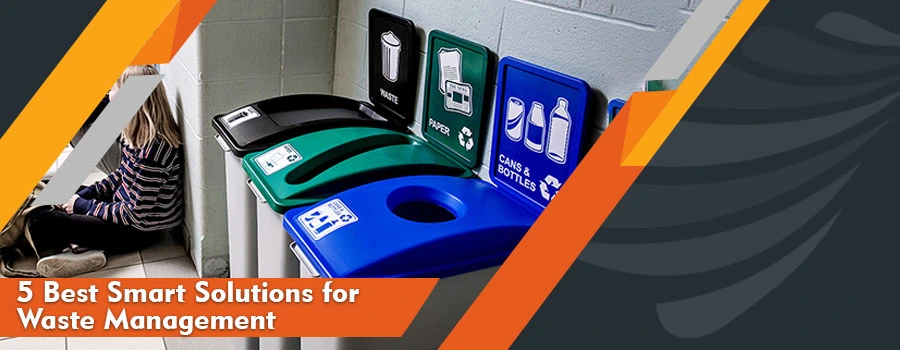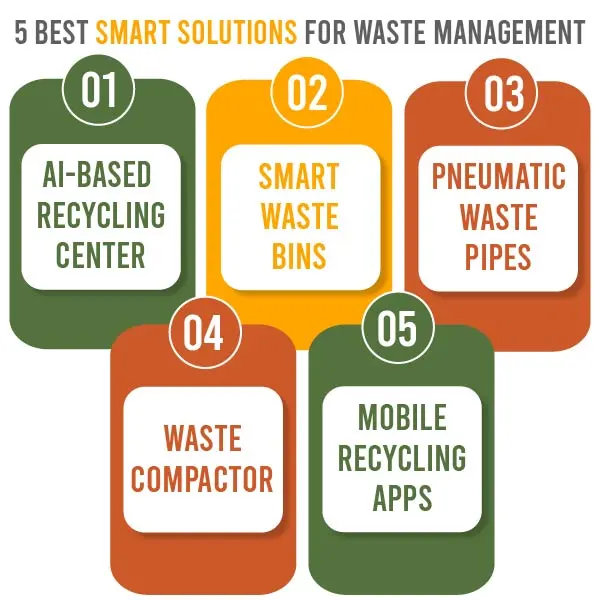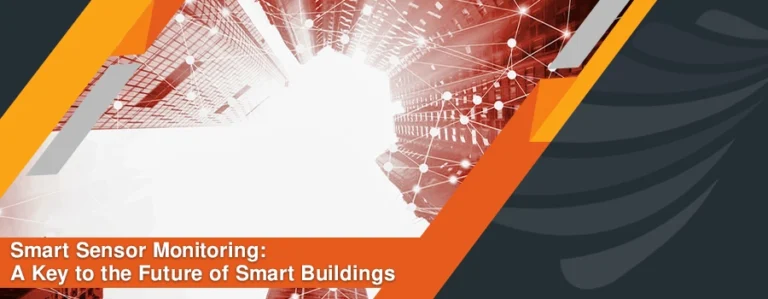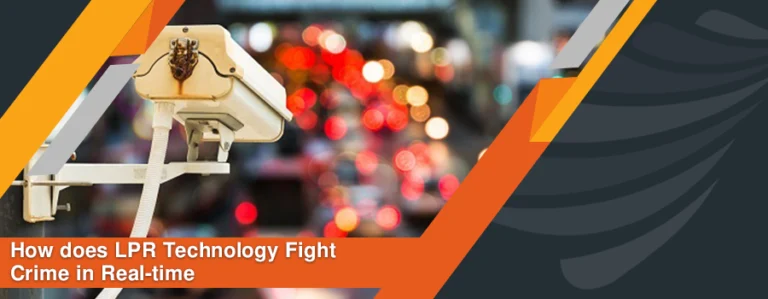Like climate change, global warming, and ozone depletion, the increasing rate of solid waste, including both hazardous and municipal, has become a global threat to human lives inhabited on the planet earth. According to a survey by the World Bank, global waste is expected to grow by 3.40 billion tons by 2050. This shows that the world needs smart waste disposal solutions that can effectively help in global waste management.
To counter the global threat of solid waste, the world is in dire need of Smart Waste management techniques. Fundamentally, Smart waste management refers to the methods and system that incorporates technology, and smart solutions of IoT, to make waste collection easy, efficient, and eco-friendly. Seemingly, IoT solutions can help collect and track real-time data and optimize the waste collection process while still opening for better innovations in the future.
Moreover, owing to the aforementioned needs and consistent development in the technological sector, many smart practices of waste disposal and recycling have been discovered. Likewise, many smart waste disposal solutions have been invented to answer global waste disposal problems. Thus, below are the five best smart solutions for waste management.
1. AI-Based Recycling Center
Recycling centers can play a vital role in waste management, especially if they become technologically sound. Generally, the traditional methods like landfills and incineration are just fine ways of waste disposal. Still, it undermines the positive potential that solid waste can provide in return and the negative impact that diffuses in the atmosphere in the form of carbon emissions and other harmful gases.
AI-powered recycling centers can help you divide between recyclable and non-recyclable items. These centers utilize smart robots or robotic hands that errorlessly identify and gather productive solid waste without even breaking a sweat. Moreover, it curtails the labor force, making waste disposal and recycling cost-effective and time-saving. Plus, garbage sorting becomes easy and accurate as human intervention is next to nothing while carbon emission is kept to a minimum.
2. Smart Waste Bins
Another smart solution that can help prevent the littering of solid waste on the roads and streets are Smart bins for waste management. Unlike traditional bins, these are IoT technology-based storage devices that facilitate waste collection by providing constant information regarding the bin’s full and empty status. Likewise, BinWise is such an IoT-enabled smart solution that can efficiently make waste management easy. Solutions like such consist of smart sensors that help waste managers monitor the bin’s fill level. It also generates notifications or alerts to aware managers for the maintenance of the smart bin. Also, they can provide the garbage collection truck with the closest route to their real-time location. In this way, waste disposal and recycling can become optimal and fast.
3. Pneumatic Waste Pipes
For better waste disposal and recycling, it is pertinent to incorporate intelligent machines and IoT technology, especially when the population is growing at an astonishing rate. Growing urbanization increases the production of solid waste and garbage. Thus, by judging such problems, cities can install pneumatic smart bins connected to waste collection plants and smart landfills via underground pipes.
This method or smart solution eliminates the traditional method of waste collection that involves the transport of garbage from the bins to different landfill sites in the city. It makes things cost-effective by lowering the expense to a bare minimum while increasing the general proficiency of waste collection and transport. In this way, solid waste or trash can travel fast and uninterruptedly through pipes which can be differentiated and utilized appropriately with the help of smart sensors and technology.
4. Waste Compactor
A waste compactor is one of the most common methods or tools of waste management. It is a vital machine that compresses a large amount of voluminous solid waste into compact bricks that takes up very less physical space. This reduces operational costs while increasing the capacity of waste collection. However, with IoT innovation, the function and efficacy of waste compactors have significantly increased. For instance, solar-powered garbage compactors are being developed that compact the trash and have data-driven capacity. It stores and transmits data while filling and collecting trash. This increases waste collection capacity by reducing overflow and pileups and improves the overall efficiency of waste management in smart cities.
5. Mobile Recycling Apps
To counter waste management smartly, we need to make people smart by making them aware through smart technological solutions. Different mobile or smartphone recycling applications can be developed to impact waste management at an individual level positively. Through these apps, users, citizens, or commoners can be provided with relevant information regarding smart practices, locations of recycling centers, and a list of recyclable things or materials to mitigate waste disposal problems.
Through such mediums and smart solutions, cities can instill and build sophisticated garbage disposal and recycling habits in their dwellers. Also, with such a civic sense, we can further prevent any negative effect on the precious environment around them.
Cities whose Examples are to be Followed for Smart Waste Management
Given the importance and necessity of incorporating smart solutions in waste management, cities have begun to utilize different technological solutions for waste disposal and recycling purposes. For example, Singapore possesses 7000 public smart waste bins that are solar-powered and equipped with fill-level sensors and a compactor to increase their capacities. Though it is the first smart city to implement such a tech-savvy smart waste management system, it is also experimenting with other eco-friendly, IoT-powered waste disposal devices to make its environment clean and green.
Moreover, Songdo of South Korea is another first city that eliminated the need for garbage-collecting trucks by installing underground pneumatic waste pipes. Through this, the trash from all over the city travels to the waste collection center or facility without interruption. Here, it can either be sorted for recycling or burned for energy production. In addition, this smart method reduces carbon emissions, making the city and its atmosphere prosperous.
Another example is Amsterdam, Netherlands-from which we should learn the smart way for waste disposal and recycling. The city has essentially integrated the weighing mechanism in its garbage collecting trucks while adding fill-level sensors in their public bins. This makes the process of waste collection data-driven. Plus, this enhances their waste collection schedules by making them cost-effective and timely.
Conclusion
In a nutshell, owing to technological advancement and the dissemination of IoT, global natural threats can now be easily and smartly countered. The aforementioned smart waste disposal solutions are perfect countermeasures for global issues like waste disposal problems and trash recycling. Moreover, we must take heap and motivation from environmentally conscious cities to start investing and incorporating smart waste management systems to make our city smart and clean.





